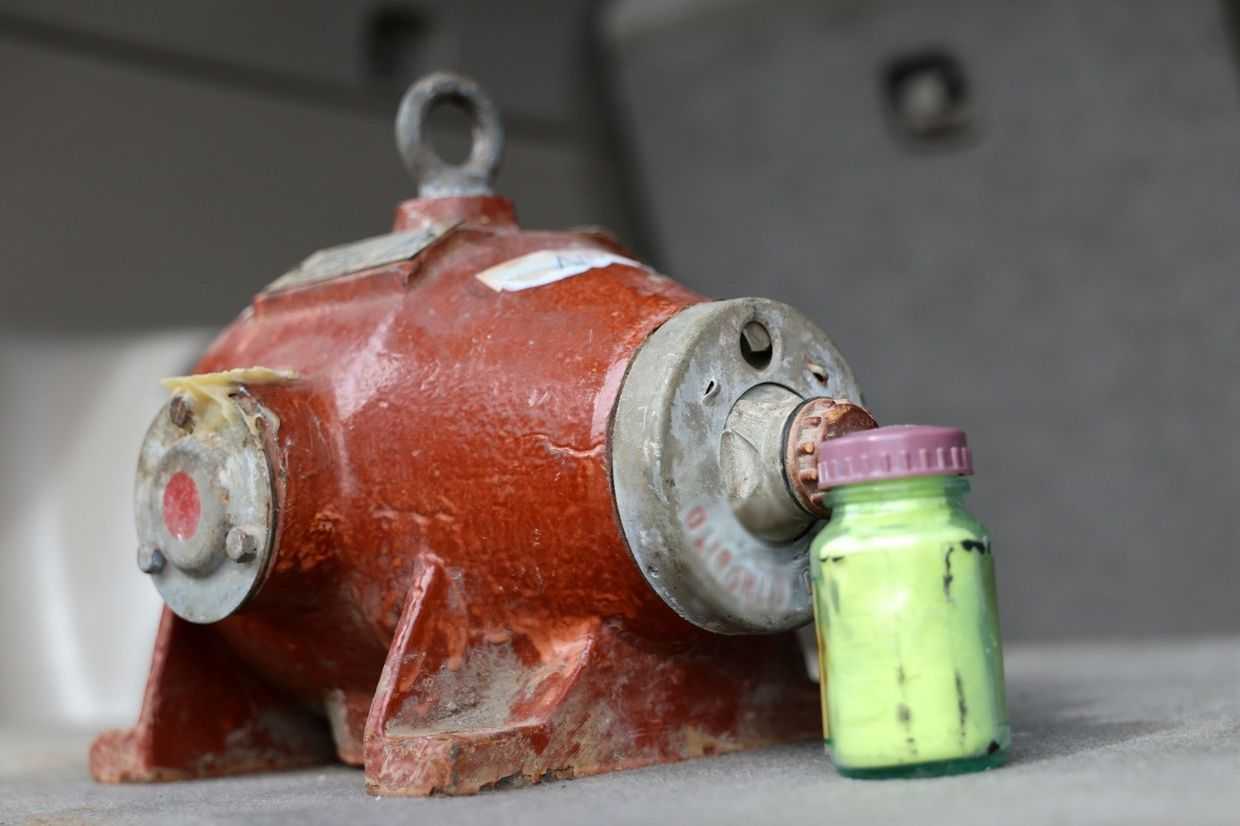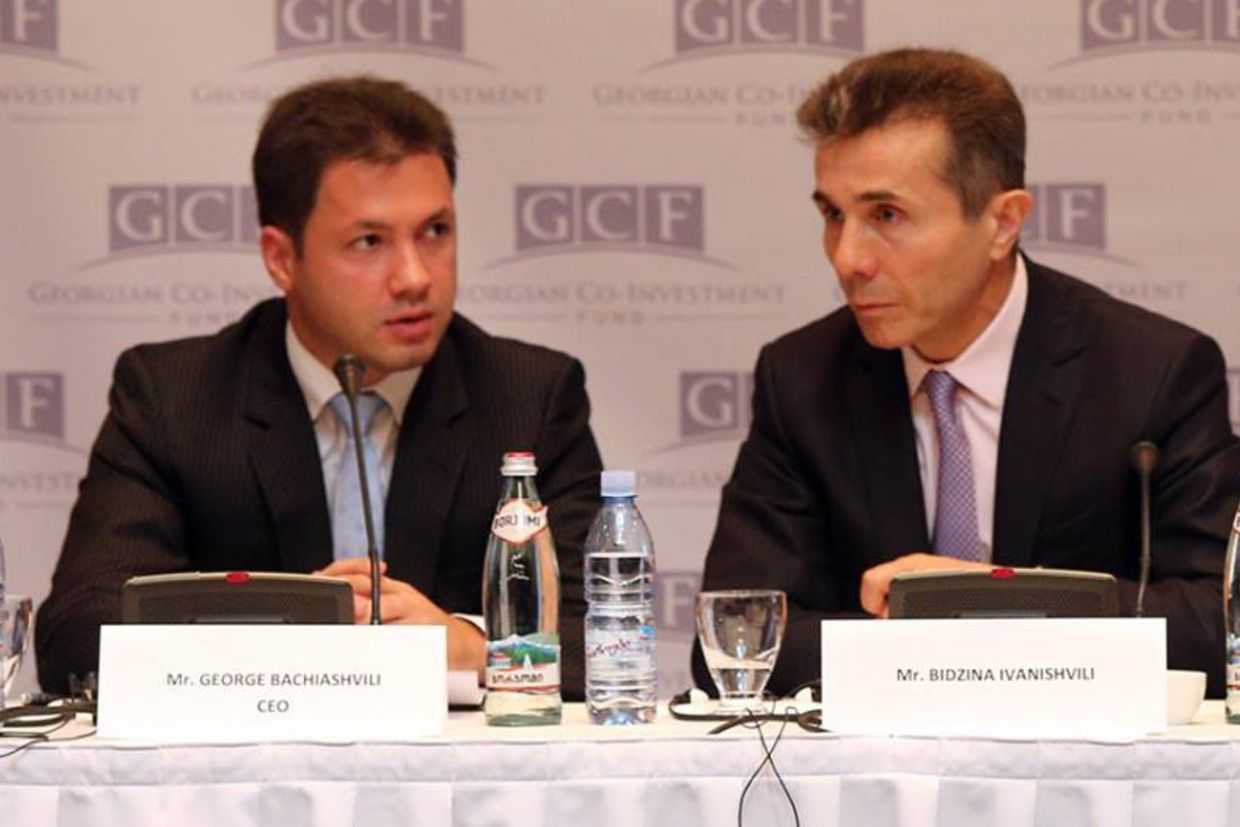On any given Saturday in Tbilisi, around the time the sun goes down, partygoers start chasing the next vibe. If it’s music they’re after, the city is buzzing with events. Techno venues like Bassiani and Khidi are reigning favorites, hosting hundreds or even up to a thousand clubbers in a single night. Smaller clubs like Mtkvarze and TES also hum with energy — concrete walls soaked in laser light, sweat in the air, and bass that rumbles through your bones. Industrial techno, acid techno, disco house, psytrance, jungle — you name it. Tbilisi’s golden age of electronic music is happening right now.
Meanwhile, in a cramped basement bar, young musicians nervously tune their instruments. Outside, techno thunders across the city — but inside, something more raw is happening. No lasers, less narcotics, and more human error. It takes guts to get on stage without knowing if the soundcheck will hold, if a guitar string will snap, if bandmates can live up to the moment, or if anyone’s even listening at all.
Despite the rise of laptop-made loops and sounds, live music in Tbilisi hasn't lost its heartbeat. On tkt.ge, a popular ticket-purchasing website, you can find plenty of non-electronic, live music events worth attending, no matter the week. Georgian orchestras and symphonies perform in grand concert halls, drawing equally grand audiences. There are medium-sized venues, many of which have been leaning in a jazz direction in recent years. And then there are the dive bars, basements, and back rooms where the real scene simmers. Scratched floors, bad lighting, secondhand equipment, cheap cocktails — hundreds of emerging bands in Tbilisi take their shot at performing in these easily overlooked venues, hoping to make a name for themselves.
One of these is Aguna, a Georgian post-grunge band made up of three guys who juggle day jobs but carve out time each week to rehearse. Rehearsals begin after 23:00 and stretch into the early hours, with drums and guitars pulsing through the thin walls of an old office block on Tamar Mepe Avenue. As a three-piece band, Aguna delivers a full, dynamic sound, with both the guitarist and bassist sharing vocal duties — as heard in their track ‘Virtkha’ (‘Rat’), which also showcases creative transitions and riffs using guitar pedal effects.

Unlike the booming clubs or concert halls, Aguna’s gigs often unfold in low-lit bars or DIY venues — tight spaces where word of mouth matters more than ticket sales. It’s a scene built on relationships: people know the bands and the bands know the crowd.
‘Our audience is mainly people who are involved in a music scene of some kind, and friend groups who actively listen to rock music. They are mostly teenagers or in their early twenties’, lead guitarist Tsotne Grigolia tells OC Media.
It’s within this close-knit underground scene that unique voices begin to rise — and LucidLust is one of the most striking. A rare all-girl, five-member rock band in Georgia’s underground music world, LucidLust has made an impression with their dreamy-yet-defiant sound. They perform shoegaze, a subgenre of alternative rock defined by its ‘wall of sound’ — layered guitars drenched in reverb and distortion, paired with soft, submerged vocals. The band plays monthly, building a quiet but steadily growing following.

‘We’re shoegazers — more like alternative girls’, Lilu Abramishvili, the band’s lead vocalist and bassist, says. ‘We may get judged for our looks, especially in this country, but we’re the sweetest, most bubbly girls ever’.
At shows, LucidLust draws a mix of ages and scenes.
‘Since shoegaze music isn’t that upbeat, people actually come to listen — not just to mosh’. she adds. The audience, she says, is always warm and supportive.
Still, the road isn’t easy.
‘Live events in Tbilisi, especially for rock, are a bit challenging’, she admits. ‘Never mind the fact that we’re an all-girl band — that’s new here, and it makes things even harder. We get judged a lot. But we’re born performers, and we want to send some kind of message [songs that people will take close to heart]’.
In a scene dominated by techno and male-fronted acts, LucidLust isn’t just playing music, but claiming space.

LucidLust and Aguna were both selected to audition for the annual Tbilisi Newcomers competition, a showcase that gives rising artists a chance to earn a spot on the Tbilisi Open Air main stage. Out of 22 auditioning bands, LucidLust was the only all-girl act — competing in a field still largely dominated by male-led rock groups. Though they didn’t clinch the top prize, the band remains unfazed.
‘No matter what the struggle is, we are gonna push through’, Abramishvili says.
The selected winner of the competition — SIF — plays nu metal, mostly in English, though with some songs in Georgian. SIF frequents many of the same bars as bands like LucidLust and Aguna. Some of these bars include names like Paperbox, Camora, Junkyard, Revolution, and Secret Place — all staple underground venues that are giving rise to the scene’s grassroots movement. These bands are young, Georgian, and trying to make something real with the time and resources they have.

As per tradition, the Tbilisi Newcomers winner opened the Tbilisi Open Air festival, held 24–25 May at Lisi Wonderland, a hillside venue just outside the city.
But this year broke from previous patterns: for the first time, only Georgian musicians and artists were featured. Preceding Georgia’s Independence Day on 26 May, the festival transformed into more of a cultural statement than solely a music-focused festival — celebrating national identity through music, theatre, ballet, wine, literature, and more. Against the backdrop of ongoing social and political shifts in Georgia, the event served as a space where artists and audiences could come together to celebrate national identity, cultural resilience, freedom of expression, and shared hopes for the future.

Yet just down the hill, in Tbilisi’s scrappy bars and pulsing nightclubs, the soundscape bursts with international energy. From Afrobeat and Georgian folk fusion to shoegaze and stoner rock, this vibrant mix reflects the city’s diverse creators. While Open Air focused exclusively on Georgian acts this year, the everyday rhythm of Tbilisi’s nightlife remains shaped by cross-cultural collaboration.
One notable example is Farhan Rahmati, an Iranian musician who found a home away from home in the heart of Tbilisi’s music scene. Having collaborated with artists from the US, Russia, Armenia, Scotland, Italy, and Senegal, Rahmati’s band has become a crossroads of cultures.
Performing under the name Farhan Rahmati Band, Farhan launched his journey in Tbilisi with solo acoustic covers and steadily expanded to full-band sets at venues like Junkyard, Philosof Club, and Dirty Habit, drawing diverse crowds of rock and metal fans.

When asked about the culture of live music events in Tbilisi, Farhan is optimistic: ‘It’s growing. People are more into it now. I’ve always kept things creative with varied music programmes, from casino gigs to System of a Down tributes’.
He adds, however, that the scene still faces challenges: ‘The scene lacks proper promoters — many charge too much and deliver too little. Still, many new musicians are going strong’.
While techno dominates the headlines in Tbilisi’s nightlife, Rahmati admits, ‘It’s not my thing, so I’ve no real insight. But yes, it seems more popular than rock or metal’.
When asked if techno takes away from the popularity of live music, he says that it ‘probably does’. But he admits he has not been to any techno events.
Farhan keeps busy, coordinating multiple band gigs and solo acoustic sets each month. Currently, he’s performing gigs in Yerevan, expanding his musical reach in the South Caucasus.
For musicians like him, Tbilisi fosters a collaborative spirit where diverse artists come together to create something fresh and unique — even if the infrastructure still has room to grow.
Farhan’s story highlights one side of Tbilisi’s live music culture: the perspective of a foreigner. But for local bands, as well, the reality involves battling unpredictable venues and difficulty with promotion.
Time Paradox is a Georgian group known for blurring genre lines. The band’s goal on stage is surprise, and they swing from heavy metal breakdowns to soft rock ballads. But in a city where rock has to compete for space, standing out is a challenge.‘Live scenes in Tbilisi are really sketchy. It really depends on who you’re playing with. It’s hard to find a decent venue with good conditions. As an underground band, no one really sees you as a serious musical prospect’, explains Nikusha Dzagnidze, the band’s bassist.

Despite these obstacles, Time Paradox is finding a niche with their ever-evolving sound.
‘Our songs can be on any theme — we’ve released singles in so many genres’, Dzagnidze says. ‘That also means we’re writing for everyone, not just fans of one or two styles. Each of us listens to completely different artists, and we mix those influences to create something that works’.
That eclecticism is the band’s identity, rooted in constant reinvention.
Collaboration with other bands helps Time Paradox find events to be a part of, and they frequently share stages with foreign acts. ‘Every musician brings something new to the table’, Dzagnidze continues. ‘Getting to know new people, especially foreigners, is essential. The audiences might vary, but the best part of those events is the exchange — new perspectives, new stories, new energy’.

And while the shadow of the techno scene still looms large, the band remains optimistic about what’s unfolding beneath the surface.
‘The underground in Georgia is getting better and better’, Dzagnidze says.
‘There are people who care and want to help musicians. In the past year, the scene has had more positives than the last ten. Sure, techno’s always been bigger here, so there’s that constant competition. But the underground will keep fighting. It’s struggling — but it’s alive, it’s growing, and it’s not going anywhere’.
In the shadows of Tbilisi’s booming techno scene, live music is quietly — but stubbornly — thriving. Breaking into bigger venues often depends on who you know, not just what you play. The larger the space, the more anonymous the experience. But in the city’s smaller venues— basement bars, backroom stages, and word-of-mouth joints — you’ll find something different: an intimate, fiercely loyal community where every chord feels personal.
The city’s heart may thump to techno, but its soul sings live. And really, what’s more exciting than witnessing a scene still in the making? So next time you’re in Tbilisi, don’t just follow the strobes to the headline acts. Step into a smaller space. A borrowed stage. A basement filled with noise. You might just hear the future echoing in feedback and fuzz.
🗞️ Subscribe to the OC Culture Dispatch
For our culturally curious readers: a free, biweekly selection of film, book, and music recommendations from the Caucasus. Our team offers a varied selection of hidden gems, cherished classics, and notable new releases from all over the region, included in our newsletter.











